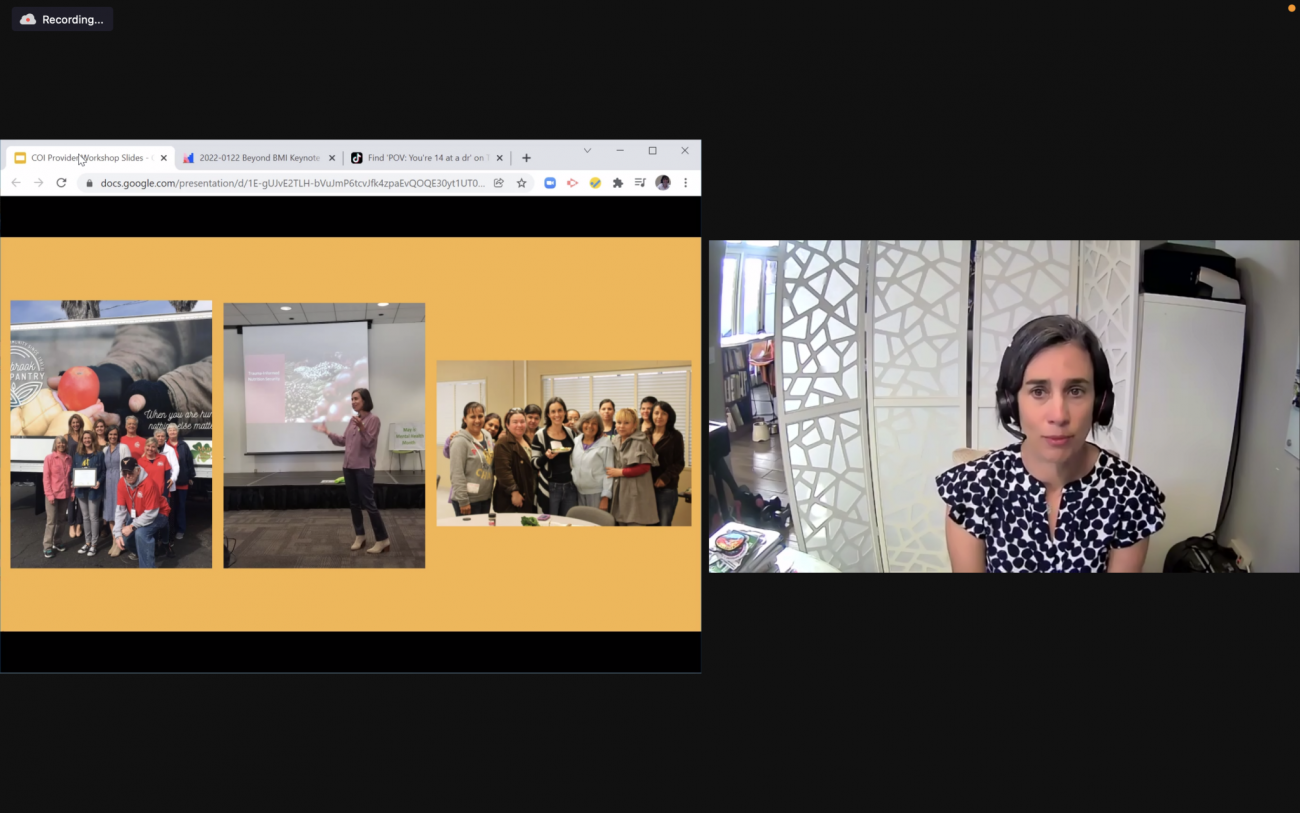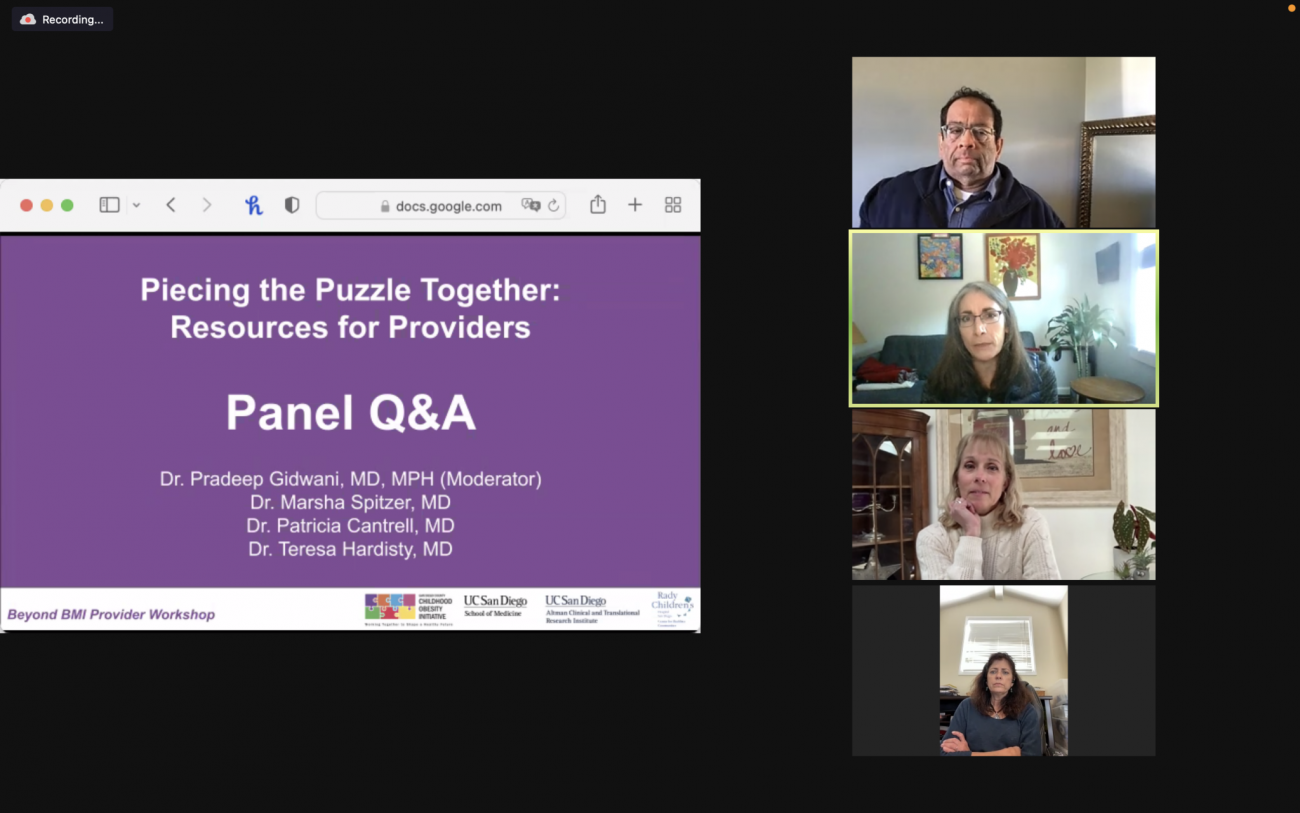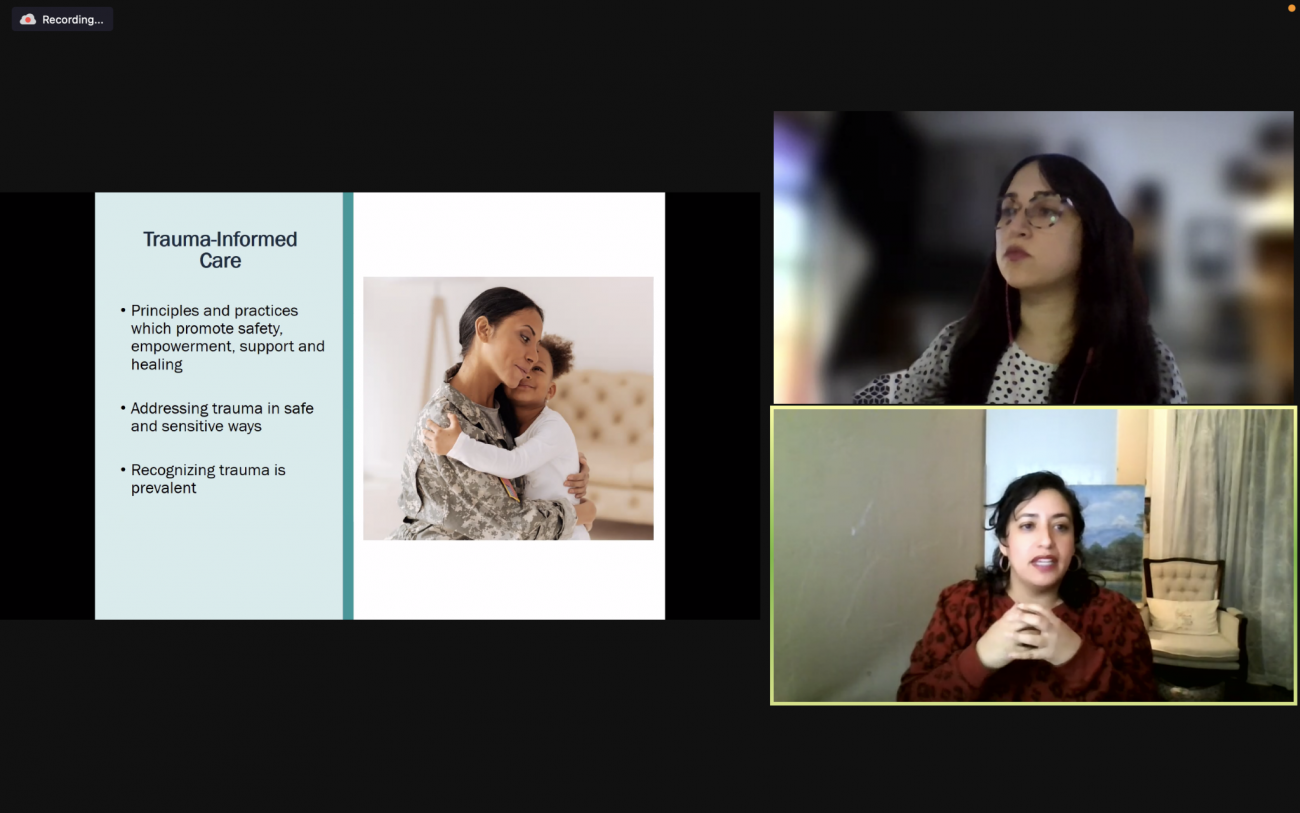The San Diego County Childhood Obesity Initiative (COI) is currently working to acknowledge Adverse Childhood Experiences (ACEs) and trauma-informed care as an integral part of their work. COI recently hosted two events addressing this: a workshop for healthcare providers titled “Beyond BMI: Cultivating Compassion, Community and Collaboration for Child Wellness” and a training titled “The Impact of Trauma in Our Communities,” training, held by the Healthcare and Early Childhood Domains respectively.

The Beyond BMI workshop offered healthcare providers best practices to discuss and implement trauma-informed care techniques when discussing overweight and obesity with children and their families. Adrienne Markworth from Leah’s Pantry delivered a keynote presentation addressing trauma related to nutrition and eating, focusing on how providers can cultivate resilience, reduce shame, and recognize barriers beyond an individual’s own control. The workshop also included a presentation by Brandi Paniagua and Ariane Porras from YMCA San Diego’s Partners in Prevention Program focused on coaching practices as a way to meet the patient where they are. In addition to these presentations, community resources such as the San Diego Hunger Coalition, ¡Mas Fresco! More Fresh, Altman Clinical & Translational Research Institute, 2-1-1, WIC, and Kitchenistas were introduced. The event concluded with a Q&A Panel Discussion with Dr. Pradeep Gidwani, Dr. Marsha Spitzer, Dr. Patricia Cantrell, and Dr. Teresa Hardisty discussing resources for providers combating obesity in youth such as utilizing wellness coaches and implementing mental health therapy for families.

At the January Early Childhood Domain meeting, a training regarding the Impact of Trauma in Our Communities was hosted by Ariane Porras from YMCA Partners in Prevention. The training focused on shared language and definitions of stress and adverse childhood experiences, and brought up the HOPE framework and the importance of positive childhood experiences when fostering healing in traumatized children. The HOPE framework consists of 4 building blocks that lead to thriving: relationships, safe environments, social engagement, and emotional growth for self-awareness.This framework focuses on a strengths-based approach to help patients flourish, creating positive experiences that shoulder the burden of ACEs.

Through these events, attendees were given a wider exposure to the beneficial impact trauma-informed care can provide to patients. It is essential to acknowledge the trauma from the COVID-19 pandemic and how we as a community can move forward. Looking past physical assessments like body mass index (BMI) and embracing the progress that comes through lifestyle changes, mental wellbeing, stronger relationships is key to creating real change in patients’ lives. COI is continuing to advance its commitment to integrating trauma-informed care across multiple domains, including exploring further capacities within the Healthcare and Early Childhood Domains that hosted these sessions.
To learn more about how COI is integrating trauma-informed approaches throughout its initiative, sign up to get involved with COI’s workgroups here.
